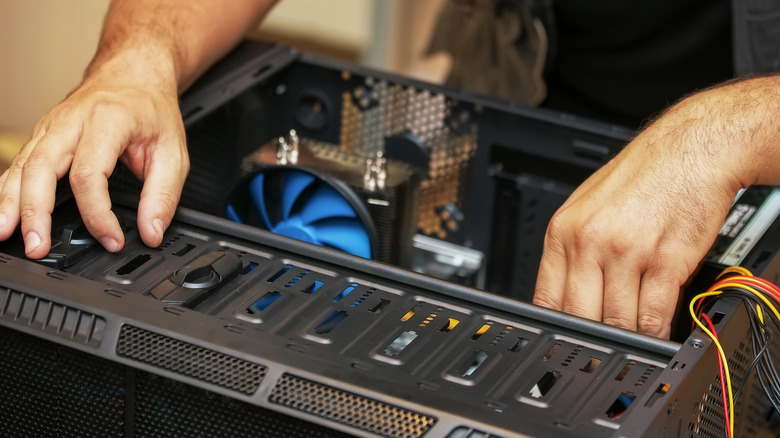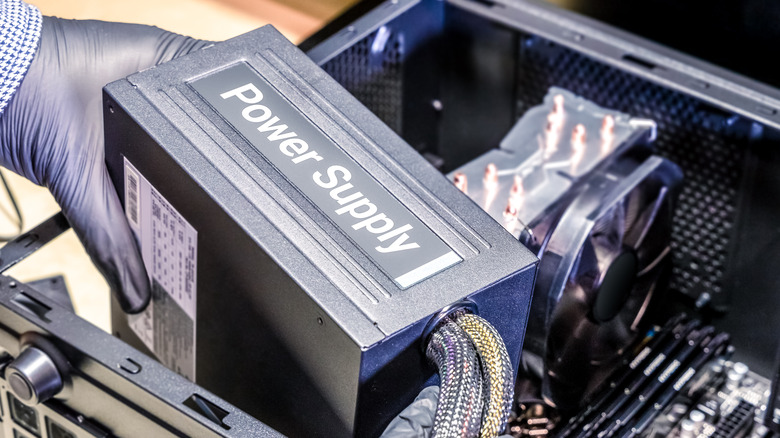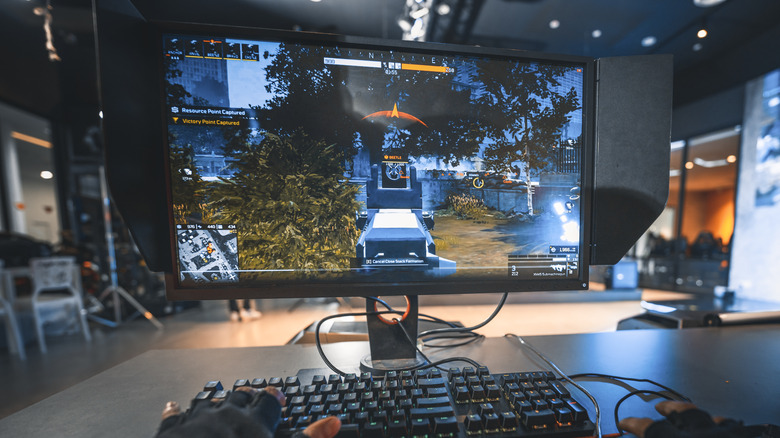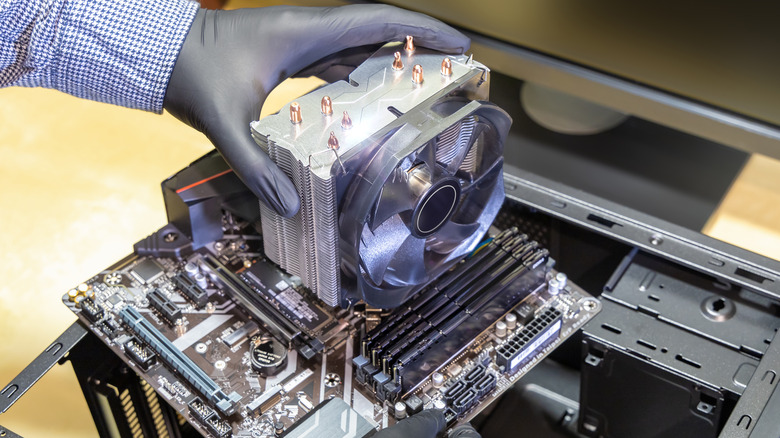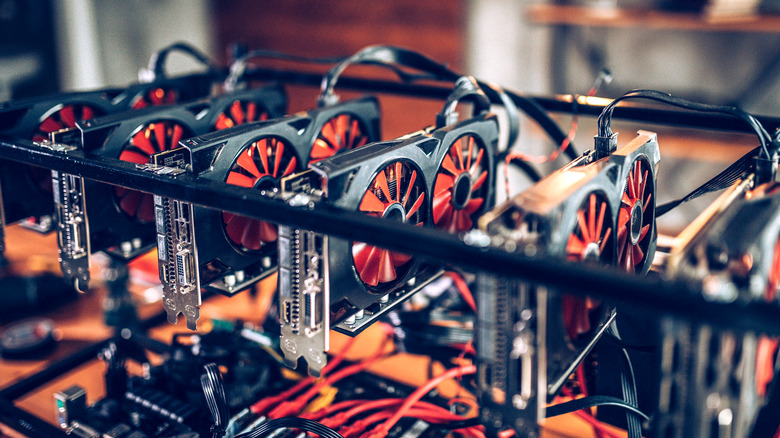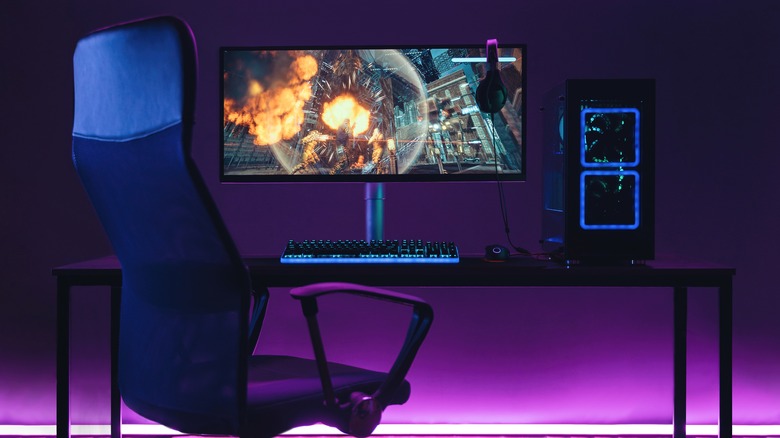When Building A PC, Never Go Cheap On These Parts
We may receive a commission on purchases made from links.
If you're building your own computer, whether it's your first time or not your first rodeo, you might be tempted to save on some components in order to afford a better graphics card or processor. On the surface, that's not wrong — those two parts will net the greatest performance gains, but these units often cost the most, so it makes sense to spend more on crucial parts. However, it's really not all that simple, and there are things you should never save money on when you're building a PC.
Assuming you're a PC gamer, you might be tempted to allocate the vast majority of your budget to get one of Nvidia's or AMD's best graphics cards. While this gets you more mileage in recent games, it could also prove to be problematic if the rest of your computer is not prepared to handle the power of the GPU. This is still true if you want to build a PC for other purposes, such as work, entertainment, content creation, or even machine learning.
Similarly, you could have a great PC, but your PC is not the only thing that contributes to your overall user experience. If the rest of your setup is not equally good, you might be wasting money on a powerful desktop. We'll help you avoid the pitfalls of PC building and shopping. These are the factors you should never go cheap on if you want your PC to perform well for years to come.
Future-proof your power supply
Many people think that the processor and the graphics card are the most important components in a PC, but that's not exactly true. It's true that your PC needs at least one of them to run; some CPUs have built-in graphics, so you can skip a graphics card, especially if your rig isn't designed with heavy gaming in mind. However, all PCs require a power supply unit (PSU) and if your PSU isn't good enough, your computer could be in serious trouble unless you do your research.
Each component in a PC comes with its own power consumption rating. Adding those up will reveal the kind of PSU you need to buy: the higher the wattage of a PSU, the more expensive it costs, so it might be tempting to save $50 or even $100 to get a cheaper model. Avoid doing that at all costs.
When you shop for a power supply, it's better to buy a model that leaves you with plenty of wiggle room, especially if you have upgrade plans later on down the road. For example, if all of your components together consume roughly 700 watts of power, you're probably better off getting an 850W PSU as opposed to 750W. Having a PSU that's too weak could seriously damage your PC if something goes wrong, and even if not, it might simply turn itself off because the rig is drawing too much power from the PSU.
Picking the right brand is important, too. Some of the best power supply units are produced by brands like EVGA, Cooler Master, or Be Quiet.
Buy an equally capable monitor
While not technically a component in a PC, a monitor still plays a crucial role for desktop users. Without a capable screen, your powerful PC is nothing more than decorative. Despite that fact, many people tend to overlook the importance of getting a capable monitor that matches the output of the computer, but it's actually the only way to get your money's worth.
The monitor is responsible for displaying whatever your PC is able to put out, of course. If you're playing a game, the monitor's refresh rate determines how many frames per second (fps) you're actually getting. If you get a high-end PC, but pair it with a 60 Hz monitor, that means that while your computer likely can give you even better performance that goes above 120 fps, let's say; your monitor is still going to be locked to 60. You'd essentially be wasting all that juice provided by your PC's performance because you're bottlenecked by the monitor.
This is why it's important to do some research before pulling the trigger and buying a PC. If your PC is capable of hitting higher frames, buy a 144 Hz monitor (or even higher) to keep up with it. The higher refresh rates also make other tasks feel smoother, such as browsing or watching movies, so it's not wasted even on a non-gaming PC — although arguably, a gamer benefits from a high-end monitor considerably more.
Spring for sufficient cooling
Do you know what happens to a PC that doesn't have efficient cooling? Well, a lot can happen, but none of it is good. We're talking about drops in performance, the PC turning itself off to avoid overheating, or — worse yet — completely breaking down. Investing in cooling means investing in a good, long life for your computer, as well as in its reliable and impressive performance. Even still, cooling is an often overlooked part of building a PC.
When it comes to cooling, you have a few options. Your PC case may come with fans already attached, but you might also prefer to buy some extra basic fans to put into the case. They push air around and help general airflow, but they don't offer targeted cooling.
If you're buying a powerful processor, be it from AMD or from Intel, it's also a good idea to invest in a dedicated CPU cooler. Some models may ship with a basic cooler attached, while others may not at all, so double-check when you're shopping. In addition, if you're building a high-end PC, it's generally advised to buy a CPU cooler from a brand like Noctua or Be Quiet instead of using the one that comes with your processor. Be sure to check the cooler size and compatibility before buying.
Be wary of buying used components
Although it might sound a bit scary, buying used components can actually be a decent way to upgrade your PC or even build an entirely new rig from scratch. However, it's important to keep a few things in mind if you want to buy PC parts that will last you for a good few years instead of failing at the first sign of trouble.
For starters, make sure you're buying from a trustworthy source. It's hard to tell wear and tear on PC components without testing them first, so it's best to buy from a place that has buyer's protection in case the component turns out to be broken.
In any case, you need to prepare yourself for the fact that used components may not last as long as something bought new, but this depends on a lot of factors. For example, GPUs that have been previously used for crypto mining are more likely to be damaged than those that were just used by casual gamers.
Keep everything at a similar price point
We hope that our advice will help you build a well-rounded PC. Ultimately, when you're choosing your components, there are a few things to consider. First, check for compatibility and make sure all the parts will fit inside your case. Sites like PCPartPicker are helpful in gauging your rig for compatible parts, even if it's already built and you're thinking about upgrading. Second, make sure that no single component is significantly better than the rest of your build.
People say that your PC is only as good as its worst component. That's not entirely true, but it's also not entirely false. If you spend $1,200 on a graphics card, but choose a $300 processor and a $70 power supply to go with it, your powerful GPU will be held back by the rest of the rig. In that case, it's better to spread your budget evenly, and never skimp on components like the PSU or the cooler. The money you spend today will pay off when your PC still works well a few years from now.
